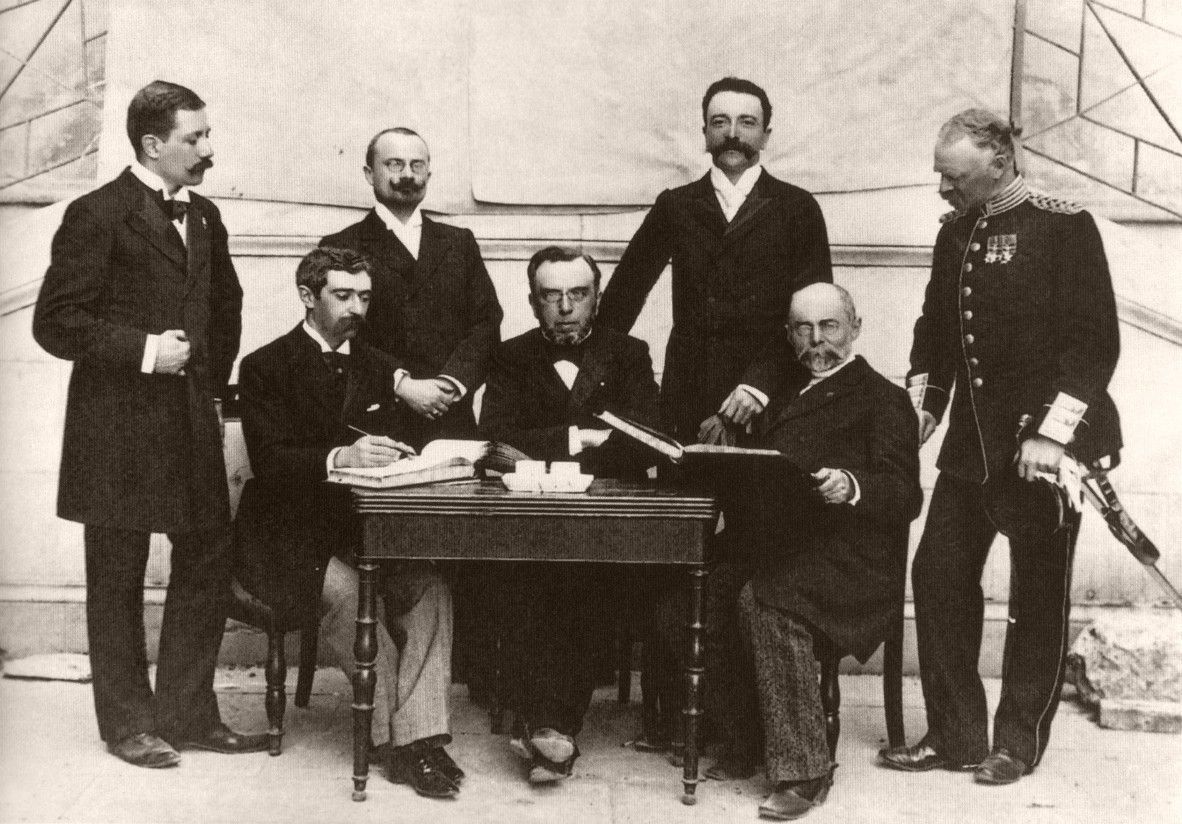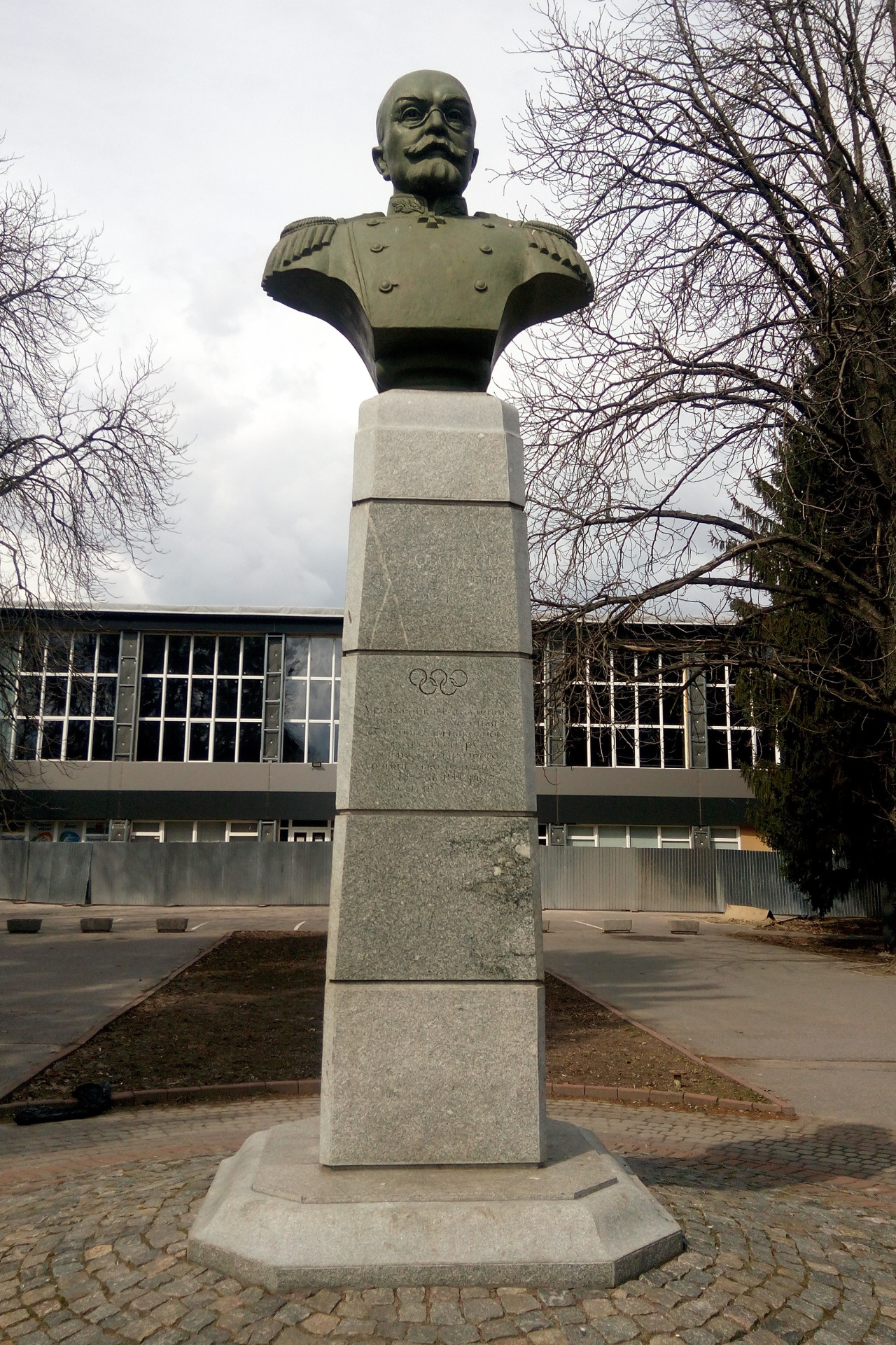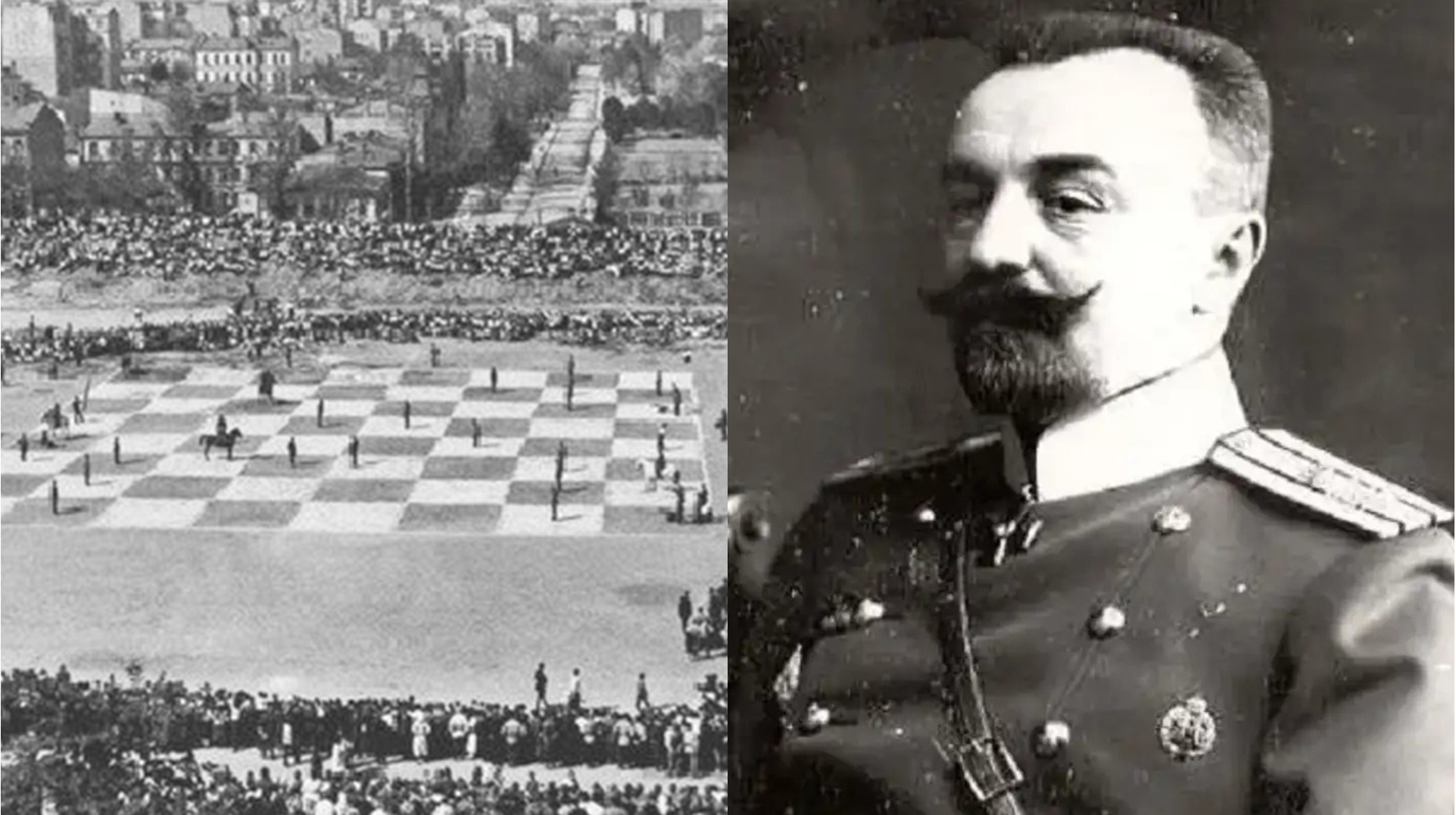General Butovsky, hailing from Poltava, is recognized as the founder of modern Olympism.
Regarding the last point, I must admit my mistake: I incorrectly stated in the aforementioned text that Butovsky participated in six Olympic congresses. Upon checking this information against Ukrainian Wikipedia, it turned out that he actually attended only two (and one of them was virtual). The figure "six" likely arose because that many Olympic congresses took place from 1894 until Butovsky's death in 1917. However, it's hard to imagine that in 1914, the old and already blind general traveled to Paris just to attend the VI Olympic Congress.
This is not just about a desire for fair play, as is befitting an honest athlete. It is also due to the fact that during my Soviet life, I consumed so much false and manipulative information that I have a deep aversion to all sorts of myths and exaggerations. Especially when there are protocols and statistics where everything can be verified.
Therefore, I will present only accurate facts about the life of Oleksiy Dmytrovych Butovsky, the first representative of the Russian Empire, which included Ukraine at that time, in the IOC, a well-known sports official and associate of Pierre de Coubertin.
Oleksiy Butovsky was born on June 9, 1838, in the town of Pyatygirsk in the Kremenchuk district of Poltava region (now Lubyanka district). He came from a Cossack, later noble family. His father, Dmytro Petrovych Butovsky, was a retired staff captain.
In August 1849, Oleksiy entered the Poltava Cadet Corps, which he graduated from in 1853. He then studied for three years in St. Petersburg in the engineering class of the Konstantin Artillery School. In 1856, he was promoted from non-commissioned officer to ensign in the Life Guards Pavlovsky Regiment, after which he studied at the theoretical department of the Mykolaiv Engineering Academy.
After graduating from the academy, Butovsky returned to the Poltava Cadet Corps, where he served as assistant company commander and taught physical training until 1864.
After his work in Poltava, Butovsky returned to military service: in the rank of staff captain, he commanded a company. From 1871, he served as an educator in the St. Petersburg Military Gymnasium, later in the Main Administration of Military Educational Institutions and the Alexander Cadet Corps. He taught a theoretical course on the history of art, painting, and the history of physical culture; conducted practical classes in fencing, shooting, gymnastics, and physical games. This period also saw the publication of Butovsky's first works dedicated to various aspects of physical education in the military and military educational institutions.
Since the 1870s, Butovsky's activities have been constantly linked to the State Administration of Higher Educational Institutions. In 1878, he was promoted to colonel. From the late 1880s, Oleksiy Butovsky began addressing issues of physical education and sports. From 1888, he was a member of the commission at the Ministry of Education to develop the teaching of military gymnastics in civil educational institutions. In 1891, he was promoted to major general.
In the 1880s and 90s, at the request of the military department of the Russian Empire, Oleksiy Butovsky traveled to Europe multiple times, where he studied the teaching of gymnastic disciplines in leading educational institutions in Sweden, Denmark, Germany, Belgium, England, and France. He was proficient in several foreign languages, which facilitated his acquaintance and personal contacts with specialists in many countries. In 1892, during his stay in France, the general met Baron Pierre de Coubertin, with whom he shared common views on the development of sports and the revival of the Olympic Games.
Pierre de Coubertin personally invited Oleksiy Butovsky to the International Athletic Congress in Paris (later referred to as the I Olympic Congress). It marked a significant milestone in the history of the modern Olympic movement. The congress, held from June 16 to 24, 1894, at the Sorbonne, was attended by 78 delegates representing 37 sports federations from 12 countries. In addition to the delegates, 50 honorary members representing 16 countries participated in the congress.
General Butovsky held the status of honorary member, being the only representative of the Russian Empire at the congress, which established the International Olympic Committee (IOC), made the decision to hold the Olympic Games every four years, and determined the cities where the Games would be held in 1896 and 1900 – Athens and Paris.
Although Oleksiy Butovsky could not attend the congress, he was elected as one of the first members of the IOC. His name was announced fourth on the list of 13 individuals by Pierre de Coubertin, following Demetrios Vikelas (Greece), the president of the IOC; Coubertin himself, the general secretary of the IOC; and Ernest Callet (France), the treasurer of the IOC. Incidentally, only four individuals from that list were present at the congress in person.

Members of the IOC in 1896
Ukrainian Wikipedia carefully notes:
I apologize, but this cannot be taken seriously: the congress took place two years before the First Games, and all IOC members were elected as representatives of their respective states. And Baron de Coubertin proclaimed: "General Butovsky for Russia." No matter how we perceive this today, a historical fact is a fact.
This is as factual as the fact that Oleksiy Butovsky attended the First Olympic Games, and after the Games, he wrote and published the book "Athens in the Spring of 1896" (December 1896). According to sports historian Oleksandr Tunyk, Butovsky in this book "appeared as a keen observer, a deep analyst, who possessed a wonderful pen of a publicist."
Another fact is that Oleksiy Butovsky made two unsuccessful attempts to establish the Russian Olympic Committee. Initially, in 1896, together with the head of the "St. Petersburg Circle of Sports Amateurs," Oleksiy Lebedev – to organize the participation of the Russian Empire's athletes in the First Olympic Games; and then, in 1897, after the Games in Athens – together with Lebedev and Kyiv resident Mykola Ritter, a journalist and participant of the 1896 Olympic Games. In these endeavors, Oleksiy Dmytrovych repeatedly faced the rather cool reception from Russian society regarding calls for the practical realization of Olympic ideas in the state, as well as the indifference of Russian officials at various levels. Disappointed, Butovsky resigned as a member of the IOC in December 1900 (he was replaced by Count Georgy Ribopier). The Olympic Committee in the empire was only established in February 1911...
Nevertheless, General-Lieutenant (since 1904) Butovsky did not abandon his sporting activity and continued to show great interest in physical education, the Olympic movement, and Olympic sports. In 1905, he participated in the III Olympic Congress in Brussels as a representative of the State Administration of Higher Educational Institutions. In July 1910, General-Lieutenant Butovsky was again dispatched by this department to Brussels for an international congress on pedagogical, military, medical, and aesthetic gymnastics organized by the Belgian National League of Physical Education.
Oleksiy Butovsky was married to Anna Vasyliivna Horokhova, the daughter of a merchant, and the couple had no children. In his later years, he lost his sight and dictated his texts to his wife. In 1915, three books by the 77-year-old general were published: two memoirs and the work "Education and Physical Exercises in English Schools."
Oleksiy Butovsky passed away at the age of 79 on February 25, 1917, in Petrograd. The event went unnoticed as the February Revolution was raging in the country. The pioneer of the Olympic movement was buried at the local Novodevichy Cemetery. The general left behind over 70 works on physical education and its history. However, Butovsky was not only interested in sports; among his works is an article titled "Alcoholism in the Officer's Environment" (Russian Invalid magazine, 1913, No. 196).

Bust of Oleksiy Butovsky in Poltava
Finally, we hope that the bust of Oleksiy Butovsky in Poltava, unveiled in July 2008 for his 170th anniversary, has not suffered damage from Russian shelling. However, another bust of his, which was installed near the Kirov Stadium
